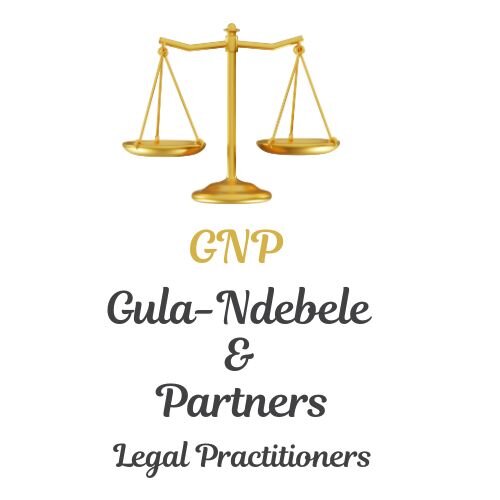Best Elder Law Lawyers in Zimbabwe
Share your needs with us, get contacted by law firms.
Free. Takes 2 min.
Or refine your search by selecting a city:
List of the best lawyers in Zimbabwe
About Elder Law in Zimbabwe
Elder Law in Zimbabwe encompasses legal issues specifically affecting older individuals, particularly those aged 60 and above. This field covers a broad spectrum of legal concerns, including financial planning, estate management, healthcare, guardianship, and protection of elder rights. As the senior population increases, the relevance of Elder Law also grows, addressing the unique challenges faced by elders including discrimination, abuse, and lack of access to necessary services.
Why You May Need a Lawyer
Several situations may necessitate legal assistance in the realm of Elder Law in Zimbabwe. These include:
- Disputes regarding pension benefits or access to social welfare programs.
- Preparation and management of wills, trusts, and other estate planning instruments.
- Questions about guardianship or conservatorship arrangements for frail or incapacitated elders.
- Cases of elder abuse, whether physical, emotional, or financial, where legal protection and recourse are sought.
- Assistance with navigating healthcare laws and decision-making processes regarding medical treatment and end-of-life decisions.
- Addressing age discrimination in employment or access to services.
Local Laws Overview
In Zimbabwe, several legislative frameworks impact Elder Law:
- The Administration of Estates Act: Outlines the management of deceased persons' estates and the creation of wills.
- The Social Welfare Assistance Act: Provides for the granting of assistance to persons in need, including senior citizens.
- The Mental Health Act: Includes provisions for the care and protection of individuals who cannot manage their affairs due to mental incapacity.
- The Older Persons Act: Aims to improve living standards for the elderly through social support and protection initiatives.
- The Domestic Violence Act: Protects individuals from abuse at home, including elder abuse.
Frequently Asked Questions
What is the age criteria for benefits under Elder Law in Zimbabwe?
Generally, individuals aged 60 and above are considered seniors, eligible for certain benefits and protections under Elder Law.
How can I protect my assets legally as I age?
Consider drafting a will or setting up a trust, and seek advice on estate planning to ensure your assets are managed according to your wishes.
What steps should I take if I suspect elder abuse?
Contact the police, social services, or a lawyer specializing in elder abuse immediately to ensure the elder's safety and begin legal proceedings if necessary.
Can an elder person make a legally binding will if they have been diagnosed with dementia?
A person must have legal capacity to make a will, meaning they understand the implications. If dementia affects this capacity, it may require medical evaluation and legal guidance.
What legal rights do elders have regarding healthcare decisions?
Elders have the right to make their own healthcare decisions if they have the capacity. They can also appoint a healthcare proxy to make decisions on their behalf if needed.
Are there legal protections against age discrimination in Zimbabwe?
Yes, age discrimination in employment and access to services is illegal, and affected individuals can seek redress through legal channels.
What are the legal requirements for assigning guardianship over an elder?
Guardianship is typically assigned through a court process, demonstrating the need for someone else to manage the elder's affairs due to incapacity.
How can I access my pension benefits legally?
Contact the relevant government department handling pensions, and consult a lawyer if you face difficulties or disputes regarding your benefits.
What provisions exist for housing assistance for the elderly?
The government and various NGOs provide housing support for the elderly. Legal advice can be sought to access suitable housing solutions.
Is there any legal assistance available for drafting living wills?
Yes, legal professionals can assist in drafting living wills to express your healthcare preferences ahead of time.
Additional Resources
For further assistance, you can contact:
- Ministry of Public Service, Labour, and Social Welfare: Overseeing programs for senior citizens.
- Zimbabwe Human Rights Commission: Addresses rights violations, including those against elders.
- National Age Network of Zimbabwe: An advocacy group for elder rights and welfare.
- Legal Aid Directorate: Provides legal assistance to those who cannot afford it.
Next Steps
If you need legal assistance in Elder Law, consider the following steps:
- Consult with a lawyer specializing in Elder Law to understand your rights and options.
- Gather relevant documents and evidence to support your case or position.
- Contact local governmental or non-governmental organizations for guidance and support services.
- Explore legal aid options if financial constraints limit your access to private legal services.
Lawzana helps you find the best lawyers and law firms in Zimbabwe through a curated and pre-screened list of qualified legal professionals. Our platform offers rankings and detailed profiles of attorneys and law firms, allowing you to compare based on practice areas, including Elder Law, experience, and client feedback.
Each profile includes a description of the firm's areas of practice, client reviews, team members and partners, year of establishment, spoken languages, office locations, contact information, social media presence, and any published articles or resources. Most firms on our platform speak English and are experienced in both local and international legal matters.
Get a quote from top-rated law firms in Zimbabwe — quickly, securely, and without unnecessary hassle.
Disclaimer:
The information provided on this page is for general informational purposes only and does not constitute legal advice. While we strive to ensure the accuracy and relevance of the content, legal information may change over time, and interpretations of the law can vary. You should always consult with a qualified legal professional for advice specific to your situation.
We disclaim all liability for actions taken or not taken based on the content of this page. If you believe any information is incorrect or outdated, please contact us, and we will review and update it where appropriate.
Browse elder law law firms by city in Zimbabwe
Refine your search by selecting a city.















